
Artículos sobre Martin Luther King, Jr. (MLK)
Mostrando 1 - 20 de 148 artículos

There’s a backlash against programs that aim to reverse the effects of systemic racism in the US. A survey indicates that racism is behind that backlash.
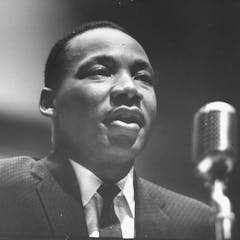
Optimism can rely on a sense of luck, while hope is action-oriented − and often aimed at helping other people.
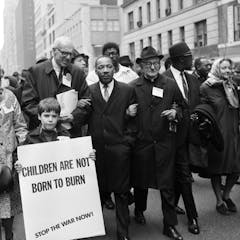
Rev. Martin Luther King Jr. knew the political consequences of speaking out against the Vietnam War − and he did it anyway.

Peace can become political when advocates oppose or try to reform governments and societies pursuing hostile foreign relations — or when these societies perpetuate injustice and oppression at home.

As the “Queen” of gospel music, Mahalia Jackson sang two songs during the historic March on Washington. But her most famous line may have been a suggestion to Rev. Martin Luther King Jr.

Harry Belafonte spent much of his life supporting youth-led movements that fought against racial injustice. A historian explains how.

Known as the ‘King of Calypso’, Belafonte used his platform as an artist to elevate and support political activism.

Singer, actor and activist died on April 25 at the age of 96. His legacy spans stage, screen and political activism.

Religious pluralism and social justice were at the core of King’s campaigns – a vision shaped by influences as diverse as Gandhi, the Black church, Greek classics and Buddhism.

A memorial to Coretta Scott and Martin Luther King Jr. has received stinging criticisms, but time will tell whether ‘The Embrace’ will endure as a cherished work of public art.
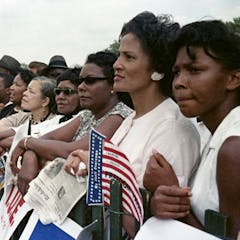
From family to grassroots activists, these are some of the women who shaped MLK’s vision and campaigns.
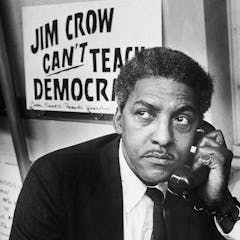
Bayard Rustin led a long and complicated life dedicated to the fight for equal rights. Targeted by the FBI, Rustin became a close adviser to Martin Luther King Jr.
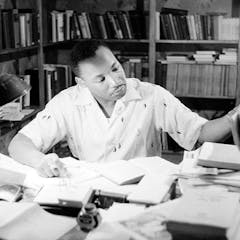
As Martin Luther King Jr. gained national prominence, the FBI launched several investigations to prove that King and his radical allies were communist sympathizers and a danger to America.

Conservatives have a long history of contorting the words of Martin Luther King Jr. to further political goals at odds with King’s vision of a colorblind society.

The United States came in 41st worldwide on the UN’s 2022 sustainable development index, down nine spots from last year. A political historian explains the country’s dismal scores.

When Rosa Parks was arrested for sitting in the front of a bus in Montgomery, Fred Gray was her lawyer. Now he’s being honored for a lifetime of civil rights advocacy.
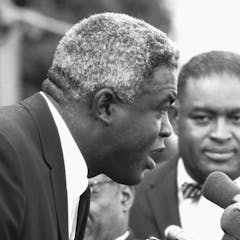
Years before Colin Kaepernick was born, Robinson wrote, ‘I cannot stand and sing the anthem. I cannot salute the flag; I know that I am a Black man in a white world.’

Scholars discuss the meaning of Ketanji Brown Jackson’s elevation to the highest court in the land.

President Joe Biden’s nominee for the US Supreme Court withstood four days of hearings and was confirmed to become the first Black woman to serve on the nation’s highest court.

In a speech that touched on America’s darkest days and most inspirational leaders, Ukraine’s embattled president made a powerful call for stronger action on Russia.
